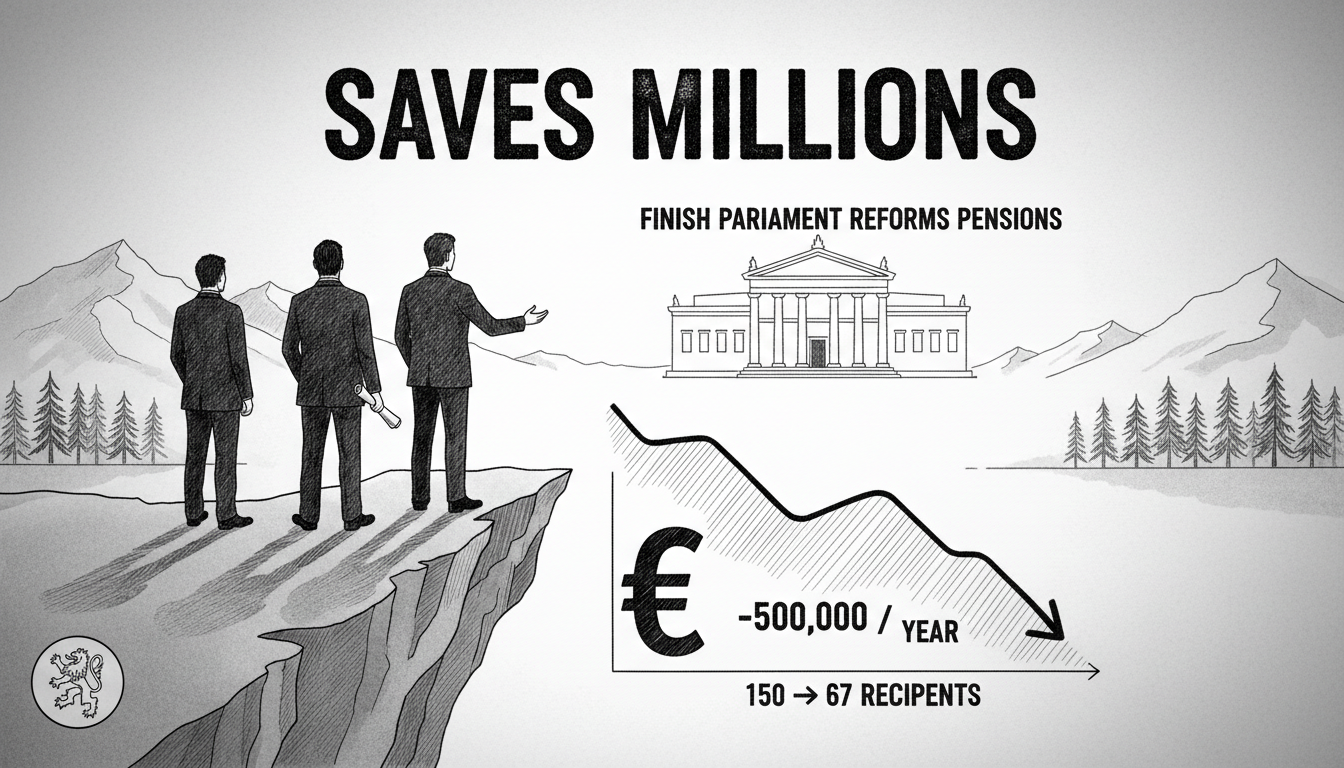The elimination of special transitional pensions for former members of Finland's parliament has saved taxpayers millions of euros since reforms took effect. The 2019 legislative changes cut annual payments by approximately 500,000 euros per year compared to previous averages.
Transitional pensions previously cost Finnish taxpayers about 1.9 million euros annually between 2007 and 2018. After the reform, the average dropped to 1.4 million euros annually. The system had become particularly expensive during election years when numerous lawmakers left parliament, with payments reaching 2.4 million euros in 2011 and 2.3 million euros in 2015.
The number of recipients has dropped dramatically under the new system. In 2011, 150 former politicians received these benefits. By 2023, only 67 individuals qualified for payments. The lowest payout year came in 2022 when a three-year transition period expired for several long-term recipients.
Originally intended as temporary unemployment support for ex-lawmakers, the transitional pension system had evolved into a controversial benefit that critics said discouraged former parliament members from seeking employment. Recipients could collect payments until age 65 regardless of other income sources, including business revenues and investments.
Some high-profile former ministers received over 5,000 euros monthly without working. The system also allowed recipients to pause and resume payments, creating what many considered an unfair advantage for former politicians.
The 2019 reforms established strict time limits for most recipients. Former parliament members now receive transitional support for only one to three years after leaving office. The exception applies to those aged 59 or older when their parliamentary career ends, who can still collect until age 65.
Payment amounts range from 36% to 60% of the average parliamentary salary during the lawmaker's tenure. A first-term parliament member earning 7,637 euros monthly would receive about 2,750 euros in transitional support. Those with over 15 years of parliamentary experience can qualify for the maximum 60% payment.
This reform represents a significant shift in Finland's approach to political compensation. The country has moved toward limiting special benefits for former officials while maintaining reasonable support during career transitions. The changes reflect broader European trends toward greater transparency and accountability in political compensation systems.
Finnish taxpayers appear to be the clear winners in this policy change. The ongoing annual savings demonstrate how structural reforms to political benefits can yield substantial public financial benefits. The reduction in recipient numbers suggests the new system better serves its original purpose as temporary support rather than long-term dependency.

